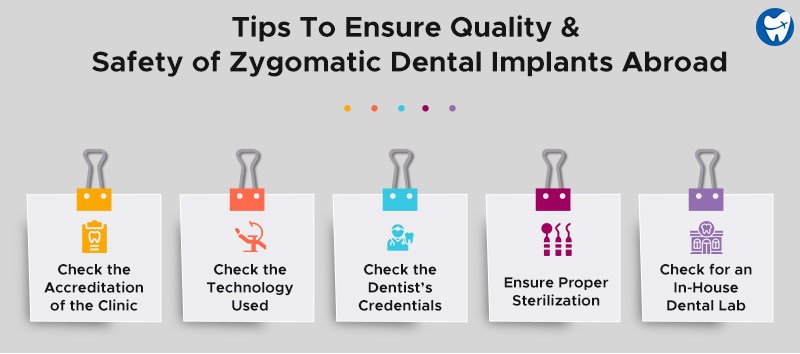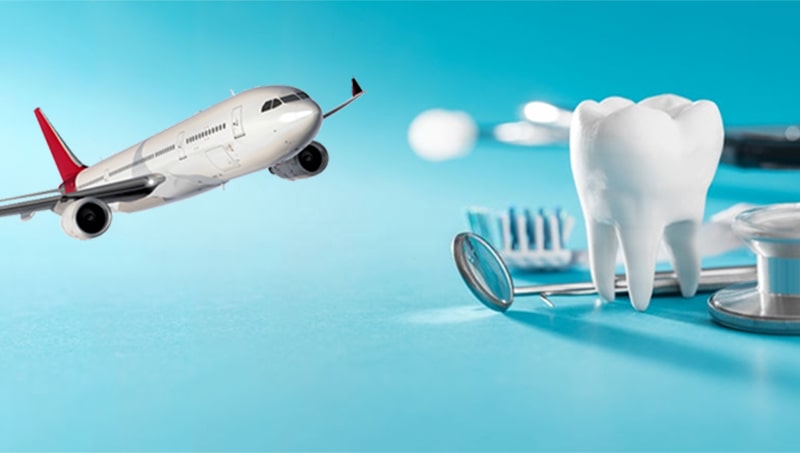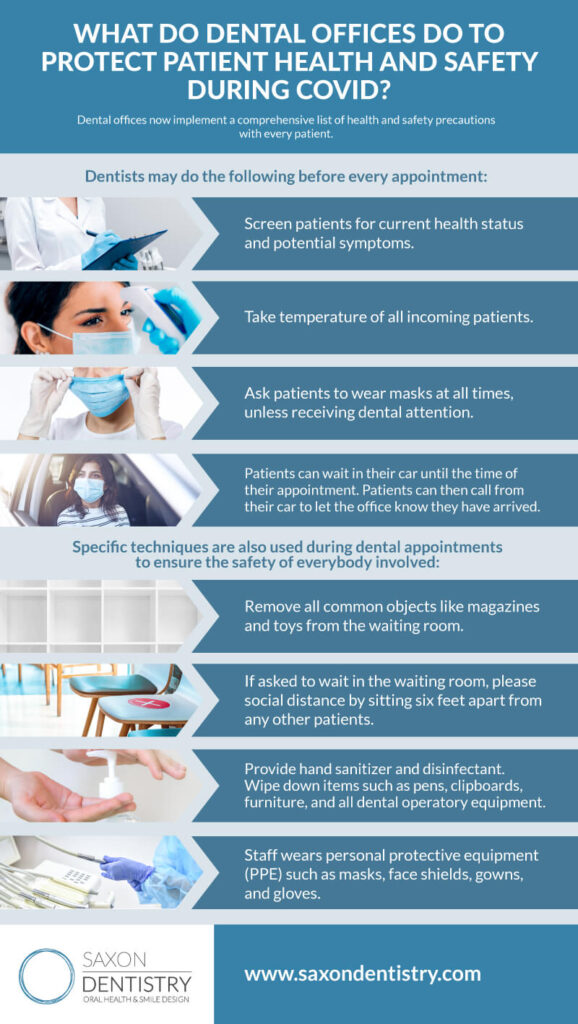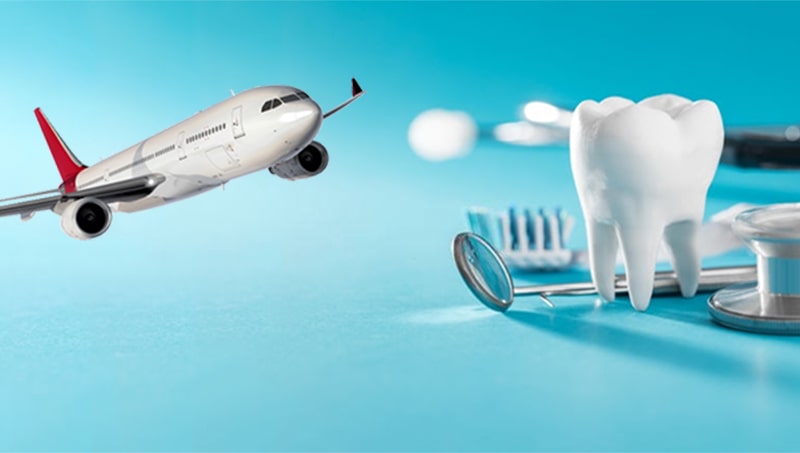If you’re considering dental tourism as an affordable option for your dental care needs, it’s important to prioritize quality and safety in your decision-making process. With the rise of dental tourism in recent years, it’s crucial to ensure that the dental clinic you choose is not only cost-effective but also meets high standards of quality and safety. This article will provide valuable insights and tips on how to ensure that you receive top-notch care and have a safe experience during your dental tourism journey.

Table of Contents
ToggleOverview of Dental Tourism
Definition of dental tourism
Dental tourism refers to the practice of traveling to a foreign country to receive dental treatment. This trend has gained significant popularity in recent years, as it offers individuals the opportunity to combine dental care with a vacation. By seeking dental treatment abroad, you can potentially save money while also exploring a different culture and enjoying a relaxing getaway.
Rising popularity and growth
Dental tourism has experienced a sharp increase in popularity and growth as people recognize the potential advantages it offers. The rising costs of dental treatment in many countries, coupled with long waiting times for appointments, have led individuals to explore alternative options. Additionally, advancements in technology and increased accessibility to information have made it easier for people to research and choose dental clinics abroad.
Benefits and drawbacks
Dental tourism can be highly beneficial, especially for those who do not have affordable access to quality dental care in their home country. The lower cost of treatment, combined with the opportunity to receive care from highly skilled dental professionals, can be an enticing prospect. Additionally, many dental tourism destinations offer top-quality clinics equipped with state-of-the-art technology.
However, it is important to consider the drawbacks as well. Language barriers, cultural differences, and the potential for complications or inadequate treatment are factors that should be carefully assessed. It is crucial to ensure the quality and safety of the dental treatment received abroad, as well as to take into account the additional costs associated with travel and accommodation.
Importance of Quality and Safety
Risks associated with dental tourism
While dental tourism can provide cost-effective solutions for dental treatment, it is important to be aware of the risks involved. The standards and regulations for dental care may differ significantly from one country to another. Lack of comprehensive regulation can lead to inconsistencies in the quality of treatment, infection control protocols, and level of expertise among dental practitioners. Inadequate sterilization practices, substandard materials, and outdated equipment are all potential risks that need to be considered.
Potential complications and concerns
In dental tourism, there is always a chance of experiencing complications or inadequate treatment due to various factors. Communication issues, such as language barriers and misunderstandings, can contribute to misunderstandings regarding treatment plans and expectations. Moreover, the inability to access post-treatment care and follow-up appointments can pose significant challenges if complications arise after returning home.
Need for quality assurance
To mitigate these risks, it is essential to prioritize quality assurance when considering dental tourism. International accreditation bodies, such as the Joint Commission International (JCI) and the International Organization for Standardization (ISO), provide guidelines and certifications that dental clinics can obtain to ensure they meet international standards. Researching and selecting dental clinics that have obtained these certifications is a crucial step in prioritizing quality and safety.
Factors to Consider Before Traveling
Researching the destination country
Before embarking on dental tourism, thorough research about the destination country is essential. This includes understanding the country’s healthcare system, dental regulations, and the reputation of dental clinics and practitioners. Investigate factors such as the country’s dental tourism industry, its track record in providing quality care, and the availability of advanced treatments and technologies.
Evaluating dental clinics and practitioners
While researching the destination country, it is equally important to evaluate the dental clinics and practitioners you are considering. Look for clinics that have a good reputation, positive patient reviews, and a solid track record of successful treatments. Consider the qualifications and credentials of the dental practitioners, their experience and expertise in the specific treatment you require, and their ability to communicate effectively in your language.
Checking accreditation and certifications
To ensure the quality and safety of your dental treatment, it is crucial to check if the dental clinics you are considering have obtained relevant accreditations and certifications. These certifications validate that the clinic meets internationally recognized standards for dental care. Look for certifications such as JCI accreditation, ISO certification, and certifications from local dental regulatory bodies in the destination country.
Reading patient reviews and testimonials
Patient reviews and testimonials provide valuable insights into the experiences of others who have sought dental treatment in the destination country. Authentic reviews can give you a sense of the clinic’s customer service, the quality of treatment received, and any potential concerns or areas for improvement. Reading multiple reviews and considering different perspectives can help you make an informed decision when selecting a dental clinic.
Pre-Travel Preparation
Consulting with local dentist
Before traveling for dental treatment, it is important to consult with your local dentist. Your dentist can evaluate your oral health, discuss the proposed treatment plan, and provide valuable advice or recommendations. They can also assist in obtaining your dental records and X-rays, which will be crucial for the dental clinic abroad to assess your condition accurately.
Understanding the treatment plan
Once you have selected a dental clinic and communicated with them about your treatment needs, it is crucial to have a clear understanding of the proposed treatment plan. Ask for a detailed explanation of the procedures involved, the expected timeline, and any potential risks or complications. This will allow you to make an informed decision and ensure you are comfortable with the treatment approach.
Obtaining dental records and X-rays
To ensure seamless continuity of care, it is essential to obtain your dental records and X-rays from your local dentist. These records help the dental clinic abroad assess your oral health condition accurately and plan your treatment accordingly. Sharing this information with the dental clinic beforehand will facilitate a smoother transition and minimize the need for additional diagnostic tests.
Discussing post-treatment care
Before traveling for dental treatment, it is crucial to discuss post-treatment care with the dental clinic. Understanding the recommended follow-up appointments, potential complications to be aware of, and the availability of post-operative care will ensure that you are prepared for any eventuality. Clear communication about expectations and responsibilities will help facilitate a positive treatment experience.

Selecting the Right Dental Clinic
Qualifications and expertise of dentists
One of the most important factors to consider when selecting a dental clinic is the qualifications and expertise of the dentists. Make sure the dental practitioners have the necessary qualifications and certifications in the specific treatment you require. Additionally, check if the dentists regularly update their skills and knowledge through continuing education programs.
Hygiene and safety protocols
Ensuring the dental clinic follows strict hygiene and safety protocols is crucial for your well-being. Ask about the sterilization processes for instruments, the handling and disposal of medical waste, and the clinic’s infection control measures. Ensuring that the dental clinic adheres to international infection control guidelines and practices will minimize the risk of infections and other complications.
Availability of modern equipment
The availability of modern equipment and facilities is essential for providing high-quality dental care. Inquire about the technology and equipment being used in the clinic, as advanced equipment often enhances the accuracy, efficiency, and safety of dental procedures. Dental clinics that invest in modern equipment demonstrate their commitment to providing optimal care to their patients.
Range of services offered
Consider the range of services offered by the dental clinic, especially if you have multiple dental needs. A comprehensive dental clinic that offers a wide range of services ensures that all your treatment requirements can be addressed in one place. This eliminates the need for multiple clinic visits and streamlines the overall treatment process.
Communication and language proficiency
Effective communication between you and the dental clinic is vital for a positive treatment experience. Opt for a dental clinic where the staff is proficient in your language or provides reliable translation services. Clear communication ensures that you can convey your concerns, understand the treatment explanations, and ask questions. A language barrier should not hinder your ability to receive appropriate care.
Ensuring Sterilization and Infection Control
Importance of strict sterilization processes
Strict sterilization processes are crucial in dental clinics to prevent the spread of infections and cross-contamination. The dental clinic should have well-defined sterilization protocols in place, including proper sterilization techniques for instruments, the use of disposable materials when necessary, and the maintenance of clean and sterile treatment areas. Regular monitoring and compliance with these protocols ensure patient safety.
Proper disposal of medical waste
Proper disposal of medical waste is essential for maintaining a safe and hygienic environment in dental clinics. The dental clinic should adhere to local regulations and guidelines for the disposal of medical waste, ensuring that contaminated materials are handled appropriately and disposed of safely. This minimizes the risk of environmental contamination and protects the health of both patients and staff.
Usage of standard infection control measures
Adherence to standard infection control measures is crucial to prevent the transmission of infectious diseases in dental clinics. These measures may include the use of personal protective equipment by the dental staff, proper hand hygiene practices, and the regular disinfection of surfaces and equipment. Dental clinics should prioritize infection control and provide a safe environment for patients to receive treatment.
Adherence to international dental guidelines
Dental clinics that adhere to international dental guidelines demonstrate their commitment to providing safe and quality dental care. These guidelines set forth best practices and protocols that ensure the standardization of dental treatment worldwide. Ask the dental clinic if they follow guidelines established by international bodies such as the World Health Organization (WHO) and the Fédération Dentaire Internationale (FDI).

Understanding the Treatment Process
Initial consultation and examination
Upon arrival at the dental clinic, the treatment process typically begins with an initial consultation and examination. The dentist will evaluate your oral health condition, review your dental records and X-rays, and discuss your treatment goals. This comprehensive assessment will help the dental team formulate a personalized treatment plan tailored to your specific needs.
Transparency in treatment options and costs
A reputable dental clinic values transparency and provides patients with clear information about treatment options and associated costs. The dental team should explain the various treatment alternatives available, including their benefits and potential risks. They should also clarify the total cost of the treatment, potential additional expenses, and payment options. This transparency enables you to make informed decisions about your dental care.
Explanation of procedures and risks involved
Before undergoing any procedure, the dental team should explain the details of the treatment plan, including the procedures involved and the potential risks. They should address any concerns or questions you may have, ensuring that you have a comprehensive understanding of the treatment process. Transparent communication about the potential risks allows you to make an informed decision based on your comfort level.
Discussion on anesthesia and pain management
If anesthesia or sedation is required for your dental treatment, the dental team should discuss the anesthesia options available and the associated risks and benefits. They should also provide information on post-treatment pain management, including the use of prescribed medications and recommendations for managing discomfort. Your comfort and well-being throughout the treatment process should be a priority for the dental clinic.
Post-Treatment Care and Follow-Up
Providing necessary medications
After completing your dental treatment, the dental clinic should provide you with any necessary medications to aid in your recovery. This may include pain medication, antibiotics, or anti-inflammatory drugs. Clear instructions on the dosage, frequency, and duration of the medications should be provided to ensure proper post-treatment care.
Instructions for oral hygiene practices
Maintaining good oral hygiene is essential for the success of your dental treatment. The dental clinic should provide you with detailed instructions on proper oral hygiene practices, including brushing techniques, flossing, and the use of mouthwash. They should also provide guidance on any specific care requirements related to the treatment you have received.
Availability for post-operative concerns
In the event of any post-operative concerns or complications, it is important to have access to the dental clinic for guidance and support. The dental clinic should provide contact information and be responsive to any questions or concerns that may arise. Clear channels of communication with the dental team are essential to address any unexpected issues promptly and ensure your peace of mind.
Scheduling follow-up appointments
Follow-up appointments play a critical role in monitoring your oral health after dental treatment. The dental clinic should provide clear instructions on when and how to schedule follow-up appointments. These appointments enable the dental team to assess the progress of your recovery, ensure the success of the treatment, and address any lingering concerns. Scheduling and attending these appointments is essential for long-term dental health.

Dealing with Possible Complications
Recognizing signs of infection or complications
Even with the best precautions, complications can sometimes arise after dental treatment. It is important to recognize the signs of infection or complications, such as persistent pain, swelling, bleeding, or fever. Educate yourself on the possible warning signs and promptly seek professional dental care if you experience any unusual symptoms.
Contacting the dental clinic for advice
If you have any concerns or questions related to your post-treatment recovery, do not hesitate to contact the dental clinic for advice. The dental team should be readily available to address your concerns and provide appropriate guidance. Prompt communication with the dental clinic can help alleviate anxieties and ensure timely intervention if necessary.
Seeking local dental care if necessary
If you are unable to reach the dental clinic abroad or have concerns that require immediate attention, seek local dental care in your home country. Local dentists can assess the situation, provide appropriate treatment, and communicate with the dental clinic abroad if necessary. Prioritize your health and well-being by seeking timely care from a trusted dental professional.
Procedure for making insurance claims
If you have dental insurance, it is important to understand the procedures for making insurance claims related to dental tourism. Familiarize yourself with the terms and conditions of your policy, including coverage for treatment received abroad. Keep copies of all necessary documentation, such as receipts and invoices, to facilitate the claims process. Contact your insurance provider to discuss the requirements and process for submitting claims.
Promoting Transparency and Regulation
Role of governments and regulatory bodies
Governments and regulatory bodies play a crucial role in ensuring the safety and quality of dental tourism. They can establish and enforce regulations, monitor compliance with standards, and provide oversight to dental clinics and practitioners. Collaboration between governments, regulatory bodies, and dental tourism stakeholders is essential to maintain high standards and protect the interests of patients.
Establishing strict standards and guidelines
To ensure quality and safety in dental tourism, strict standards and guidelines need to be established and enforced. These standards can cover various aspects of dental care, including infection control, clinical procedures, qualifications of dental practitioners, and ethical practices. Dental clinics should be encouraged to meet these standards and undergo regular evaluations to maintain their certification.
Encouraging transparency and accountability
Transparency and accountability are fundamental in dental tourism. Encouraging dental clinics to provide accurate information about their services, qualifications, and certifications builds trust and allows patients to make informed decisions. Regulatory bodies can take measures to ensure transparency, such as requiring clinics to publish their certifications, share treatment outcomes, and provide clear pricing information.
Improving reporting mechanisms for incidents
A robust reporting mechanism for incidents and complaints is essential for holding dental clinics accountable and enabling continuous improvement in the dental tourism industry. Governments and regulatory bodies should establish channels through which patients can report any issues or concerns they have experienced. This feedback can help identify areas for improvement and allow regulatory bodies to take appropriate action when necessary.
In conclusion, dental tourism offers individuals the opportunity to receive cost-effective dental treatment in a foreign country. However, ensuring the quality and safety of dental care should be a top priority. Thorough research, careful evaluation of dental clinics, and adherence to international standards can help mitigate the risks associated with dental tourism. By taking the necessary precautions and choosing a reputable dental clinic, you can enjoy the benefits of dental tourism while safeguarding your oral health.



